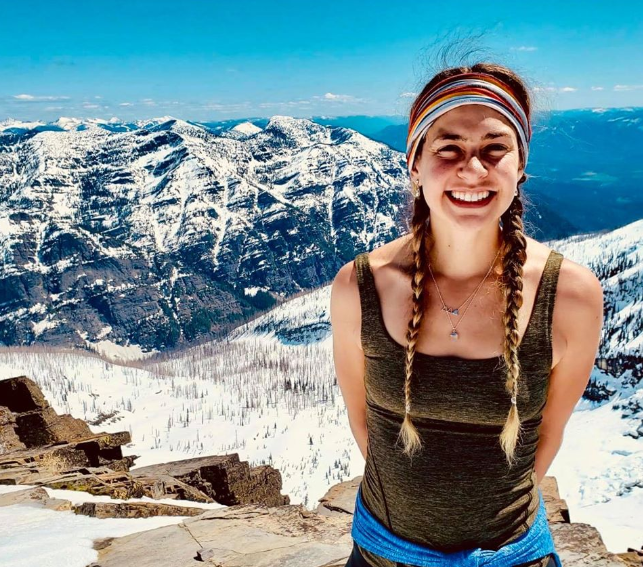
When I was a kid, I used to do a lot of what I will call, “Pictionary Praying.”
That is, kneeling on the carpet in front of my bed with my eyes closed and my hands folded (you know, how you’d draw prayer if it was your Pictionary word).
But carpet on skinned soccer girl knees doesn’t feel good, and there were times where I had something to say but it wasn’t time for bed. And that, my loves, is the start of lawless prayers.
For those of you worried that all of this talk of prayer will morph into a diatribe on faith, church clothes, or the role, or gender of God—it won’t.
Instead, when I say prayer, I mean prayer loosely and comfortably. Easy to nap in and no bra required. The kind of prayer that everyone has felt whether you’re Catholic, Muslim, Agnostic, or tired. Not because I am trying to mold my message to fit everyone’s box, but because I think everyone just needs to throw up their hands and admit they don’t really know where their box came from.
What we need is to be more free with prayer than how it is currently used. I am trying to paint prayer everywhere. I want it to get on the ceiling.
One of the main drawbacks of “Pictionary prayer” is the inaccessibility.
We can’t drop to our knees in the middle of the supermarket when we see our best friend’s ex the next aisle over, and pray to God we don’t jump into the soliloquy that we practiced in the shower for months for such a time as this.
We can’t kneel while we drive (duh).
We can’t close our eyes on a run when we’re feeling grateful for our powerful legs and unstoppable lungs.
Succumbing to the traditional prayer-like posture is doable, but not with the type of frequency this life calls for. Not when work stress creeps across our brains every hour, or health concerns are caught in our throat every waking moment, or we’re up with the sunrise to start another early shift, and we don’t have the time or energy to drop to the floor right then and say, “This morning is beautiful, thank you.”
But the posture isn’t the only thing keeping us from praying. There’s also the issue of who to address.
I was confirmed Catholic, so we keep it pretty standard, praying to Jesus (black or white—not specified, but strongly inferred) and we throw in a prayer to Mary now and then for spice. But other Christians are really quite adamant that we don’t send any of our prayers to Mary, ever, not even sometimes just to say hello.
Jews, Hindus, Muslims, religious faiths and traditions all over the world—all pray in their own ways.
You can see the issue here is not the postage, it’s whose name and address we’re putting on the front of our prayer—and then hoping that they haven’t moved or changed P.O. Boxes by the time they receive our awe, or requests, or our trembling gratitude.
And these boxy conditions, these straightedge guidelines that are simultaneously so black and white and blindingly gray, create a resistance. We’re hesitant to pray in the chance we get it wrong, or, God forbid, get it right and actually receive what we’re asking for.
But what we’ve created is the ideal environment, and need, for lawless prayers: the kind unencumbered by numbers, pronouns, and memorized scripts. The kind of prayers that don’t exist because it says so in the rule book, but because we feel it in our stomachs. The kind not created by the time of day or the meal before us, but instead with a new formula for calling on the gods: two parts unknown and one part hope.
That overwhelming sense of gratitude that hits us the moment we view the ocean, or uninhibited freedom of a ski slope, or a smell that reminds us of the first time we were in love, or a sad song, or a waterfall, or child’s eyes: those are lawless prayers.
There are no words, or there might be. There are no sounds, unless you choose them. There is no time limit, speed limit, word count, or wrong answer. There is only this: the unshakable feeling that there is something out there listening and acknowledging our depth and beauty.
Listen to that feeling. Pray accordingly.
If you have read this far, I’ll pray for you. And if you stopped at the first sentence, I will pray for you, too. And if you have never had a chance to learn to read at all, or if you eyes hurt too much from squinting at the sun, or if the last time you prayed it was naked in the ocean; or the last time you felt God, she was opening her eyes in the hospital room, or in a flower field, or in a stranger’s arms, or in your lover’s arms, or in your mother’s arms, or in your home, then I will pray for you too.
And my prayer will be this:
“Lord, I do not know a lot, but there is something out there bigger than me. I know there is something bigger than me.”
~










Read 0 comments and reply